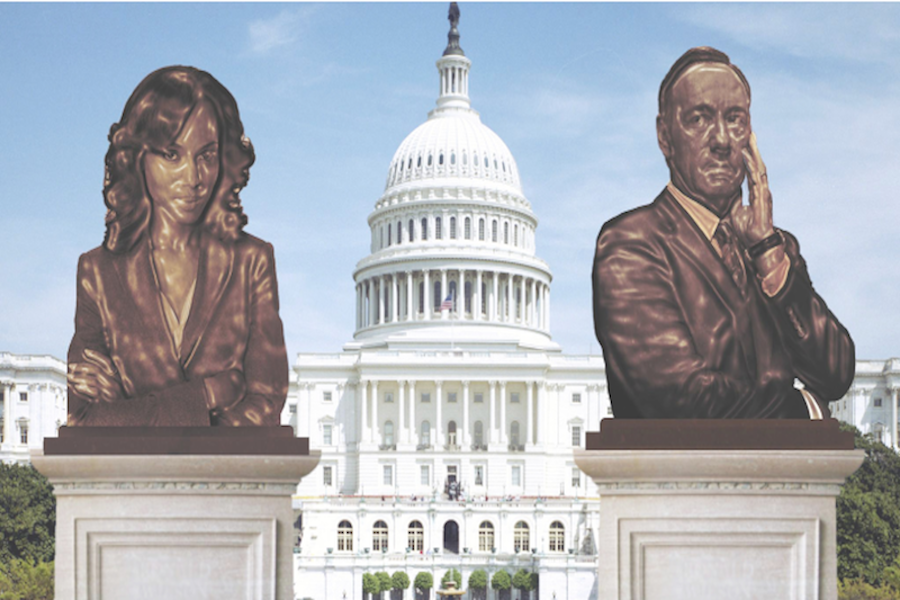Whether you are watching each episode on live TV with the changing Twitter trends readily at your fingertips, or latea at night on a dangerously obsessaive Netflix splurge, there is one type of show that seems to have taken its reign over all screens.
D.C. political dramas.
“Shows like ‘House of Cards’ provide an exciting, although incredibly unrealistic, alternative to the boring old-white-man landscape of the current Congress,” said Daniel Kasseff ’14, a fan of political TV shows.
Kasseff said that he loves these shows because they provide a unique and dramatic narrative on how politics in Washington D.C. work. While we are constantly informed through second hand sources about the events happening in real life Washington D.C., we never get to see what really happens behind the closed office doors of our nation’s capital.
Nora Cowherd ’15 said, “Even though it’s fiction, it sort of feels like we get an inside look on Washington politics.”
People like to feel like they are in the know, and while political dramas are not even remotely true, fans love the ability to open up Netflix on their laptops and instantly find out all of the scandalous secrets of (fake) D.C.
While the word “fan” may describe some viewers of these shows, a more accurate term would be “addict.”
“Every single episode ends on a cliffhanger,” Claire Sampson ’15 said, “they just drop bombs throughout the show that don’t even get resolved by the end of the episode.”
Sampson explained that the plots of shows like “Scandal” and “House of Cards” seem to be specifically sculpted in a way that physically prevents people from not watching the next episode. Fans of all political shows agree that with all of the dramatic twists and suspenseful issues, it takes an enormous amount of willpower to close their computers and not continuously click the ‘play next episode’ button until the season (or series) ends.
While the exaggeration and unrealistic qualities of political dramas are clear, they do help some students get a better understanding of certain aspects of the government and how it all works.
“We always learn about all of these terms and concepts in AP Gov; but it’s hard to fully understand words on paper,” Cowherd said. “Political TV shows portray many things that we’ve been learning with an interesting plot so it sort of brings life to boring government terms.”
These shows not only take the gov textbook to a whole new level, but they make people, who may not have otherwise had an interest in the government, find themselves in a heated debate about the political issues going on in the latest season of “House of Cards.”
Kassef said, “I think these shows have the power to get students to develop a greater appreciation for government issues and make them more inclined to learn about how the system works.”

















































